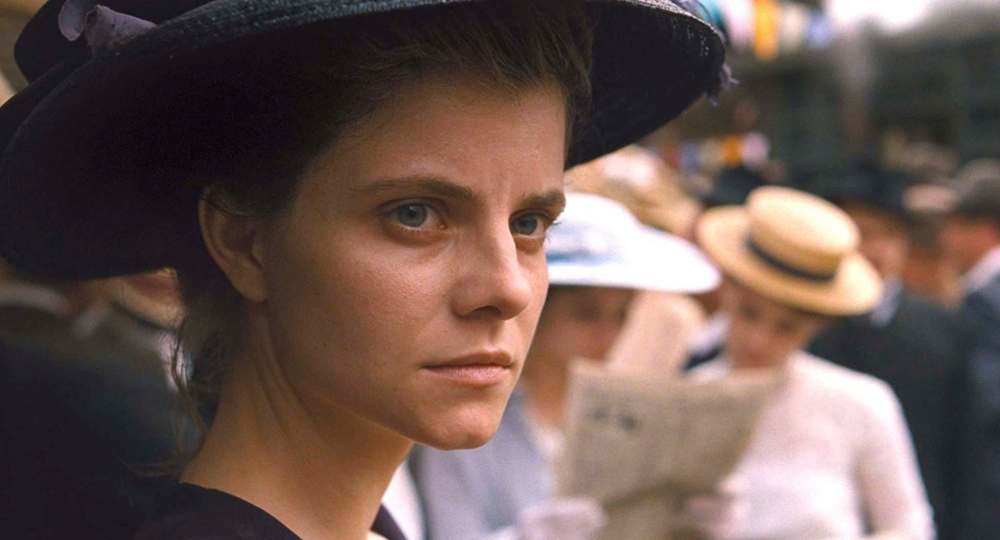An inscrutable sunset
Hungarian director gets bogged down in search for deeper meaning
Advertisement
Read this article for free:
or
Already have an account? Log in here »
To continue reading, please subscribe:
Monthly Digital Subscription
$0 for the first 4 weeks*
- Enjoy unlimited reading on winnipegfreepress.com
- Read the E-Edition, our digital replica newspaper
- Access News Break, our award-winning app
- Play interactive puzzles
*No charge for 4 weeks then price increases to the regular rate of $19.00 plus GST every four weeks. Offer available to new and qualified returning subscribers only. Cancel any time.
Monthly Digital Subscription
$4.75/week*
- Enjoy unlimited reading on winnipegfreepress.com
- Read the E-Edition, our digital replica newspaper
- Access News Break, our award-winning app
- Play interactive puzzles
*Billed as $19 plus GST every four weeks. Cancel any time.
To continue reading, please subscribe:
Add Free Press access to your Brandon Sun subscription for only an additional
$1 for the first 4 weeks*
*Your next subscription payment will increase by $1.00 and you will be charged $16.99 plus GST for four weeks. After four weeks, your payment will increase to $23.99 plus GST every four weeks.
Read unlimited articles for free today:
or
Already have an account? Log in here »
Hey there, time traveller!
This article was published 10/10/2019 (2220 days ago), so information in it may no longer be current.
László Nemes’s last film, 2015’s Academy Award-winning Son of Saul, was a brutal and claustrophobic Holocaust film. In this exquisitely constructed but ultimately frustrating drama (in Hungarian and German, with subtitles), the director leaves behind Auschwitz for the elegance of the Austro-Hungarian empire in the last year of the Belle Époque.
While Sunset may not be as viscerally difficult as Son of Saul, Nemes’s evocation of 1913 Budapest is still beset by an overwhelming sense of violence and dread, with its dark, phantasmagoric images suggesting a civilization on the brink of conflagration.
When Irisz Leiter (Juli Jakab, known for her work in Son of Saul) returns to the millinery store once owned by her parents, her search into her origins becomes an absurdist nightmare, freighted with muffled metaphor and Kafkaesque enigma.

The mere act of Irisz setting a foot over the door of the Leiter hat emporium seems to unleash irrational forces, as other characters attack her or protect her, draw her in or warn her away. The store, almost destroyed by a mysterious fire that killed Irisz’s parents, has been rebuilt, and the attitude of its new owner, Oszkar Brill (Vlad Ivanov of 4 Months, 3 Weeks and 2 Days), seems uncertain. Irisz is further disoriented by the discovery she might have a brother, who has been accused of a horrific crime and has disappeared into the Budapest underworld.
This is no standard mystery, however, but a non-linear mind-bender with few clues and no clear answers. “It’s starting all over again,” one observer says, though in Irisz’s long, looping, completely opaque quest, we’re never clear what “it” might be. Even the identity of Irisz, played with hyper-focused but flattened-out intensity by Jakab, seems to dissolve, sometimes merging with her dead mother or her dangerous brother.
There are military parades and reports of arms buildups, and a 21st-century audience knows the city is slouching toward the First World War. Nemes, along with co-scripters Clara Royer and Matthieu Taponier, is never explicit about the politics, however, instead evoking a vague sense of psychosocial terror, with seemingly nothing between decadent and repressive rulers and a vengeful and violent mob.
There are sinister visitors from Vienna — a city viewed by the Budapest residents with a mix of envy and resentment — an opium-addicted countess and even occult threats, with the suggestion that young women are serving as ritual sacrifices to an elite cabal. There are off-camera explosions that could be celebratory fireworks or harbingers of the carnage to come. And there are hats, dozens of absolutely fabulous hats.
As in Son of Saul, Nemes’s restless, moving camera presses in tight on his characters, following the back of Irisz’s lovely neck as she wanders through thronged streets or labyrinthine hallways.
There are complex crowd scenes, often kept deliberately out of focus. The audio often seems just out of earshot, with overheard conversations, ambient whispering and the constant murmuring of city sounds.
The defiantly strange Sunset is unclassifiable, but it has parallels to 1945, another Hungarian film, in which the mysterious arrival of two strangers shortly after the Second World War galvanizes a town, or The White Ribbon, a Michael Haneke film set in the German countryside in 1914 that suggests the deep roots of fascism.
At 142 minutes, Sunset feels overly long and ultimately too impenetrable to fulfil Nemes’s ambitions for deeper meaning.
The film does work as an unsettling mood piece, though, with its parade of sunny, fashionable pleasures unfolding under a shadow of imminent destruction.
Nemes juxtaposes a rotted-out civilization with the absolute heights of hat-making.
By putting the Leiter store, with its murky past and uncertain future, at the centre of the film, Nemes seems to suggest the two things are related.
“The horror of the world hides behind these infinitely pretty things,” one character says, which is perhaps the only way to sum up this beautiful, violent film.
alison.gillmor@freepress.mb.ca

Studying at the University of Winnipeg and later Toronto’s York University, Alison Gillmor planned to become an art historian. She ended up catching the journalism bug when she started as visual arts reviewer at the Winnipeg Free Press in 1992.
Our newsroom depends on a growing audience of readers to power our journalism. If you are not a paid reader, please consider becoming a subscriber.
Our newsroom depends on its audience of readers to power our journalism. Thank you for your support.


